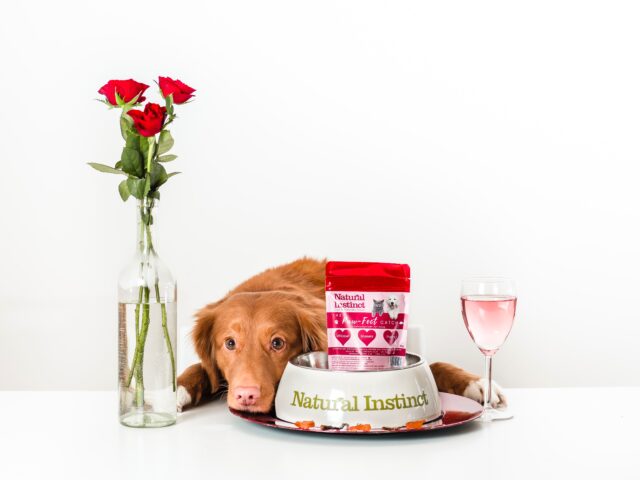
If you’re a dog owner attempting to provide your four-legged friend the best nutrition possible, you might be wondering if nutritional yeast is a beneficial addition to your dog’s diet. People are increasingly using nutritional yeast as a health supplement. But what about dogs is it beneficial and safe for them too? In this article, we’ll examine the benefits, risks, and proper use of nutritional yeast for dogs.
What is Nutritional Yeast?
A particular variety of yeast called nutritional yeast is raised for both human and animal use. Because of its savory, cheesy flavor, and high protein, fiber content, and vitamin content, it is a well-liked vegan and vegetarian cuisine component.
To improve energy, strengthen the immune system, and encourage good digestion, nutritional yeast is regularly used as a supplement.
Is Nutritional Yeast Safe for Dogs?
Indeed, it is generally accepted that dogs may consume nutritious yeast in moderation. When ingested in the right quantities, it is a natural food element that is safe for dogs. But, it’s crucial to introduce nutritional yeast gradually and watch your dog’s reaction, just as with any new meal.
Benefits of Nutritional Yeast for Dogs
Rich in Nutrients
Protein, fiber, and vitamins are all abundant in nutritional yeast. It has a lot of B vitamins, which help with energy generation and normal brain function. Moreover, nutritional yeast has zinc, which is crucial for healthy skin and the immune system.

Supports Digestive Health
The fiber in nutritional yeast can help support healthy digestion in dogs. It promotes the growth of beneficial gut bacteria, which can improve nutrient absorption and prevent digestive issues such as constipation and diarrhea.
Promotes Healthy Skin and Coat
B vitamins and zinc, which are necessary for healthy skin and fur, are abundant in nutritional yeast. These nutrients can encourage a glossy, lustrous coat and prevent dry, itchy skin.
How to Feed Nutritional Yeast to Dogs
It’s crucial to add nutritional yeast to your dog’s food in moderation if you’re interested in doing so. A nutrient overload or digestive distress may result from consuming too much nutritional yeast. To give nutritious yeast to dogs, follow these suggestions:
Start with a small amount
Starting just by adding a little nutritional yeast, like 1/4 to 1/2 teaspoon each day, into your dog’s food. Increasing the dosage gradually while keeping an eye on your dog’s response over a few days or weeks.
Choose a high-quality brand
Choose a nutritious yeast product that is of the highest caliber and designed for both human and animal usage. Brands with additional additives, such as salt or artificial tastes, should be avoided.
Consider your dog’s overall diet
The addition of nutritional yeast to a healthy, diverse diet is advised. Adding nutritional yeast may not be essential if your dog is already getting enough protein and B vitamins from their usual diet.
Risks of Nutritional Yeast for Dogs
Although nutritional yeast is largely risk-free for dogs, the following dangers should be considered:
Allergic Reactions
Nutritional yeast may cause allergies in certain dogs. Itching, redness, and swelling are indications that an allergic response is occurring. See your veterinarian and stop giving nutritional yeast to your dog if you think it’s having an adverse response.
Overconsumption of Nutrients
Some minerals, such as zinc and B vitamins, are abundant in nutritional yeast. These nutrients can be consumed in excess and cause problems with the digestive system or the skin. It’s crucial to watch your dog’s overall nutrient intake and only sometimes offer nutritional yeast.

Conclusion
When given in moderation, nutritional yeast might be a good supplement for dogs. It may promote good digestion, skin, and coat as well as being a rich source of protein, fiber, and vitamins.
Therefore, it’s crucial to gradually introduce nutritional yeast and observe your dog’s response. It should be provided in the right doses and used as a supplement to a balanced and diverse diet.
FAQs
Q1: Protein in my dog's food can nutritional yeast replace it?
Although it shouldn't be used in place of their usual meal, nutritional yeast can be a source of protein for dogs. It functions best when added to a healthy, diverse diet as a supplement.
Q2: Can I give my dog a certain amount of nutritional yeast?
It's better to start up slowly and build up over a few days or weeks, possibly starting with 1/4 to 1/2 teaspoon each day.
Q3: Do dogs get stomach problems from nutritional yeast?
Some dogs may have stomach discomfort if they consume nutritional yeast in excess. It's crucial to feed sparingly and observe your dog's behavior.
Q4: What about pups and nutritional yeast?
Although nutritional yeast is relatively healthy for pups, it is important to speak with a doctor before introducing any new supplements to his diet.
Q5: Can dog health issues be fixed by nutritional yeast?
Dog health problems of any kind shouldn't be treated with nutritional yeast. It can be a helpful supplement to maintain general health, but it's crucial to speak with a veterinarian about any particular health issues.
Read also
- Unlock Duck Hunting Secrets: Most Effective Dog Breeds
- Cushing Disease Dog Diet: How to Manage Your Dog’s Health
- Lion Dog Breed: A Perfect Blend of Beauty and Grace
- Puppy Barking: Understanding and Managing Your Furry Friend’s Vocalizations
- Chihuahua Puppies Care: What You Need to Know?
- Unraveling the Mystery: All About the Scooby Doo Dog Breed
- Discover the Majestic Big White Dog Breed: A Guide to These Magnificent Canines
- Best Dog Food for Puppies: Meeting the Nutritional Needs of Large Breeds
- Homemade Dog Food Recipe: Happy Tail-Wagging Guaranteed!
- Unveiling the Enchanting Lady and the Tramp Dog Breed: A Tale of Elegance and Playfulness
- Mastering the Art of Giving a Dog a Pill Without Food
- Why Is My Dog Barking at Nothing?: Unraveling the Mystery
- How to Stop a Dog from Jumping Up on Guests
- The Ultimate Guide: How to Stop a Dog from Jumping Up | Expert Tips
- Corgi vs Shiba Inu – Which Breed Is Right for You?
- The Best Small Dog Car Seats for Safe and Comfortable Rides
- Discover the Enchanting Feist Dog Breed: A Blend of Tenacity and Intelligence
- Dog Barking Sound: Understanding and Addressing Canine Vocalization
- Stop Dog Chewing Furniture: 7 Effective Home Remedy That Work!
- Top 10 Best Dog Brushes for Shedding and Grooming | Comparison & Reviews




